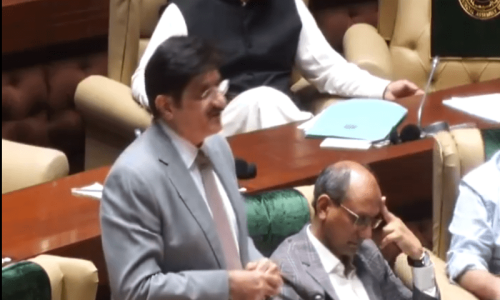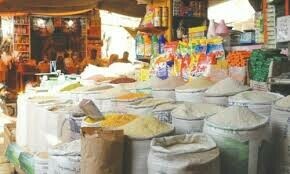KARACHI: Not only more people suffer road crash injuries during Ramazan, but there is an overall increase in road fatalities in the holy month as compared to other months of the year, says a study, calling upon the traffic authorities to pay attention to the safety of vulnerable road users.
Titled ‘Vulnerable Road Users Are at Greater Risk During Ramazan — Results from road traffic surveillance data’, the study conducted in Karachi gives important insights about road traffic crashes (RTCs) during Ramazan and the differences in frequency, distribution and outcome of these crashes.
It was published last year in the Journal of the Pakistan Medical Association and comprised data from the Road Traffic Injury Surveillance Project which entailed information on all road traffic injury victims presenting to the emergency departments at city’s five major tertiary care hospitals between Sept 2006 and Sept 2011.
The data analysed comprised 163,022 road traffic injury (RTI) patients out of whom 13,640 (8.4 per cent) came during Ramazan and 149,382 (91.6pc) in the other months. Overall, 109,416 RTI patients were men in the age group of 16-45 years.
The most common mode of transport was private cars, transporting 66pc (Ramazan period) and 64pc (non-Ramazan period) patients to hospitals.
According to the study’s findings, although there were similarities in the distribution of crashes during different times of the day, but a distinct peak was observed during Ramazan at around 6-7pm which fell down to the non-Ramazan level at 11pm.
“All three types of road users had different frequency of crashes when compared at different times of the day, but at least two peaks could be seen for increased frequency of road crashes for pedestrians — 3-4pm and 8-9pm. Motorbike riders, however, demonstrated a different pattern and the peak time for motorbike crashes was 6-7pm.
“Motor vehicle passengers displayed less variance in RTCs during Ramazan. For all time periods, the proportion of fatality was higher in Ramazan than in the rest of the year,” the study says.
It found that overall pedestrians and motorbike riders, classified as vulnerable road users, were more commonly involved in RTCs, which had been reported in previous studies. Secondly, crashes were reported more or less as frequent as in the non-Ramazan period but they tended to cluster near the time of breaking the fast till the late evening Taravih prayers, which are traditionally offered in mosques, 6-10pm.
Road crashes involving pedestrians occurred most commonly at the end of business hours (around 4pm) during the daytime and around the night prayers (around 9pm).
“At this hour, the markets are still open and many people head for shopping after the last prayer of the day. In contrast, motorbike users are distinctively involved in RTIs just before breaking the fast at around 6pm.
“We also found that during Ramazan, overall RTCs were higher than in the other months of the year. It is important to note that those presenting between 6-7am during Ramazan had a higher fatality rate than the control group i.e., 10.4pc verses 7.7pc, but the numbers were so small that statistical significance could not be estimated,” it says.
Overall road traffic fatalities also rose in Ramazan, according to the study, and the most significant finding was a rise of fatality between around 6am and 8am that averaged about 9pc of all the crashes during a 24-hour time period. However, the reason for this observation could not be determined through the study.
Regarding the reasons for higher road traffic injuries and fatalities in the holy month, the study points out that the day starts early with increasing activity on the roads after dawn in Ramazan. Similarly, significant traffic jams are observed at the time of business closure, which occurs between 3-5pm in the afternoon. This is the time when pedestrians are more likely to be on the roads with the associated increased risk of injury.
“Another reason for increased traffic and busy roads in Ramazan is the increase in seasonal vendors. These vendors often occupy spaces on the main roads and pedestrian pavements. Thus, they not only obstruct the flow of traffic but also hinder pedestrian mobility,” it says.
The second most vulnerable group is that of motorbike riders, who are most at risk of RTIs just before the breaking of the fast. “People prefer breaking fast at home with families and this is the time when everyone hurries back home.
“Increased attendance of people at mosques at Taravih prayers and buyers visiting shopping malls and markets as late as midnight result in exposing a larger number of people to traffic on the roads, and possibly because of poor visibility and lack of compliance with traffic laws, late-evening crashes and increased involvement of pedestrians in injuries are more common in Ramazan,” it says.
According to the study, physical fatigue from fasting, less sleep and exertion together result in impaired cognition, day-time sleepiness and mood changes both among road users and healthcare providers.
“These effects may be responsible for the observed differences, but have not been studied in the local context so far. Our findings suggest that governmental institutions responsible for traffic control need to design more efficient traffic control systems, especially to protect pedestrians, according to the changing road traffic burden during different times of the day during Ramazan,” it says.
Published in Dawn, June 8th, 2016















































